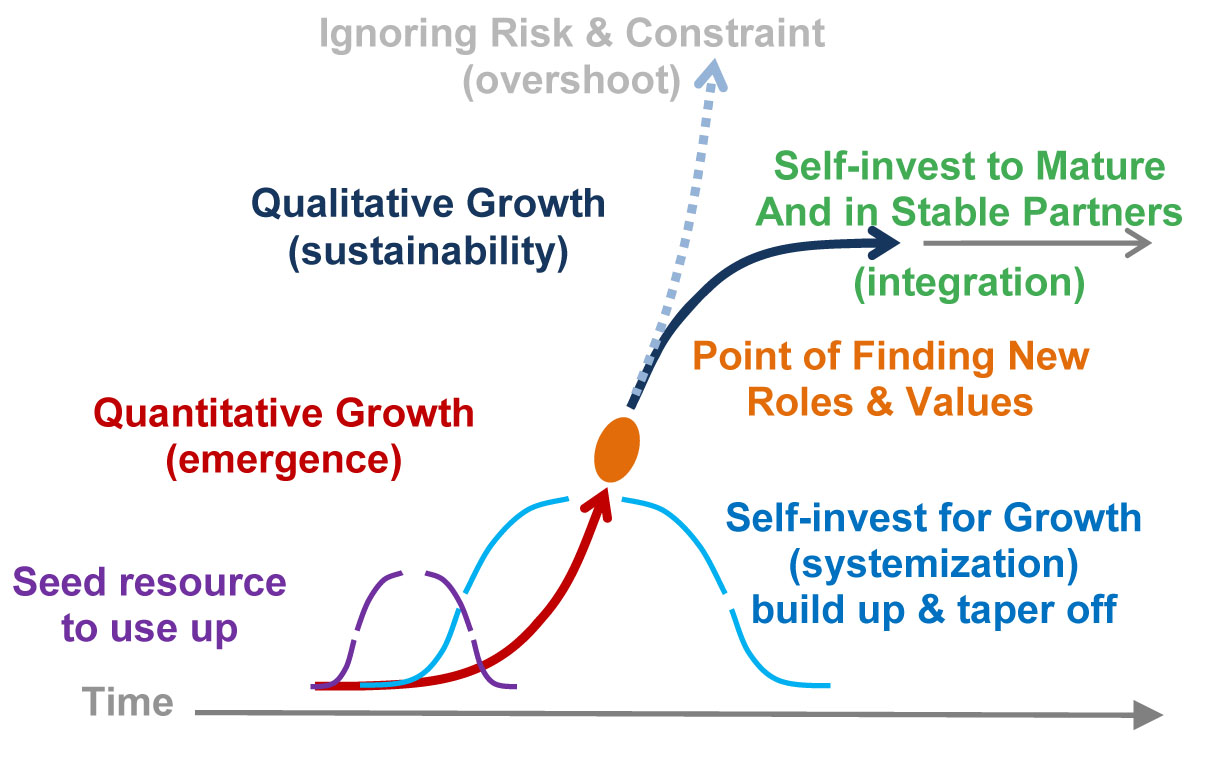I had found a cozy place to work on sustainability from inside the UN, but discovered the words holding the discussion together there had accumulated meanings that were deeply dishonest… so I’m back on the outside.
___________
Over the past year I developed two rather wonderful scientific learning methods, as if school courses in “Niche Making 101, 102”, for people searching for how to work with nature. One is the 3Step method for learning how your economic commons works and the other the World SDG for making the totality of our growing impacts on the earth transparent to each other. Both were very unexpectedly attacked rather than discussed in the organization I was part of, though, and I’m understanding the offense.
After much suffering, puzzlement and close observation, the harsh reaction to learning by a scientific approach now seems due to it not being sufficiently ideological. Unfortunately… letting up on the ideologies we may use to stamp the world with is the very first rule for learning from nature. Finding that people both didn’t seem to know that, or to be willing to try, is an important lesson I wasn’t prepared to learn, especially that my own social network would respond as if attacked by my suggesting good creative ways to do it .
Ideology is an artificial and inflexible but handy social substitute for reality. By definition ideologies are self-defined, built up as social affirmations in well connected networks. It makes them strong but also largely unable to adapt and respond. For people they provide mental comfort, useful knowledge of group habits, and a private coded language only understood in the network.
How ideologies can open up and become adaptive we often fail to notice, though, how often we naturally change from one to another in the course of a day or week as we engage with different networks. We change ideologies much as if putting on and taking off clothes, often using a change of clothing to do it in fact. So,… it seems sensitive, but need not offend, to notice that ideologies need to be suited to situations and to grow and change with them, letting us try on different ones for fit. Ideologies can be temporarily considered as “nice outfits to wear”, and need not be treated as contracts required of others for whom they don’t fit.
Sadly, the dishonest words this viewpoint helps us understand are some of the favorites in the discussion of sustainability. They’re ways of mixing honorific images of ever accumulating wealth and reducing our footprints on the earth: “sustainable growth”, “decoupling”, “circular economy”, even “sustainable development”. They’re frequently used to compare “apples and oranges” and coming up with “ever increasing consumption without consumption”. With that usage our goal and purpose becomes to accelerate the “tragedy of the commons”, that is our whole discussion is about how to avoid.
How you can tell that for yourself is by observing that putting the contradictory meanings of “development” together requires switching back and forth from one ideology to the other, with that switch not being mentioned. It shows that people, in conversation, are adopting an ideology of hiding when they switch ideologies. Sadly that seems what we have socialized around doing, unaware of the consequence. At present nearly anywhere in the global sustainability movement you go (and I’ve really looked around!), you get strong pushback for even trying to bring it up.

Nature doesn’t respond to artful ideology in the least, though. Not one little bit. What nature responds to is the growth of new organisms that change from expanding their conquests to then making their niches. That succession is their (and our) door to joining the commons by making their (and our) homes in it. Feel good euphemisms for the opposite, stitching together our true ideals into fig leaves for endless conquest philosophies like BAU, actually don’t work.
No need to take off our clothes in public… but dropping ideological fig leaves at times
seems required for how we learn.
Jessie
